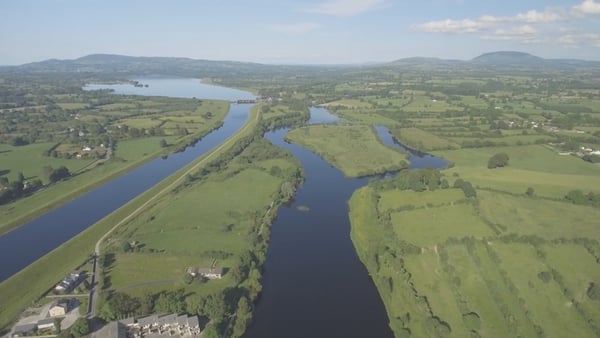There has been a 30% increase in heat-related mortality in Europe over the past 20 years, a new report from the EU Copernicus Climate Change Service and the World Meteorological Organisation has said.
The State of the Climate report also warned of serious consequences for public health as the frequency and intensity of heatwaves continues to increase.
The report confirmed that Europe is the fastest warming continent on earth, with temperatures rising at around twice the global average rate and said that temperatures will continue to rise.
It detailed how in 2023, Europe witnessed: the largest wildfire ever recorded; one of the wettest years; severe marine heatwaves; and widespread devastating flooding.
The report warned of serious consequences for public health as the frequency and intensity of heatwaves continues to increase.
It also warned that current heatwave interventions will soon be insufficient to deal with the expected heat-related burden.
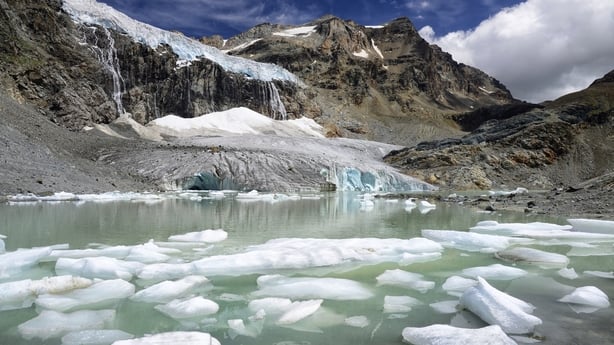
According to the report, Europe is the fastest warming continent on Earth due to several factors, including the proportion of European land in the Arctic, which is the fastest-warming region on earth, and to changes in atmospheric circulation that favour more frequent summer heatwaves.
The report highlights that 23 of the 30 most severe European heatwaves have occurred since 2000, and five in the last three years.
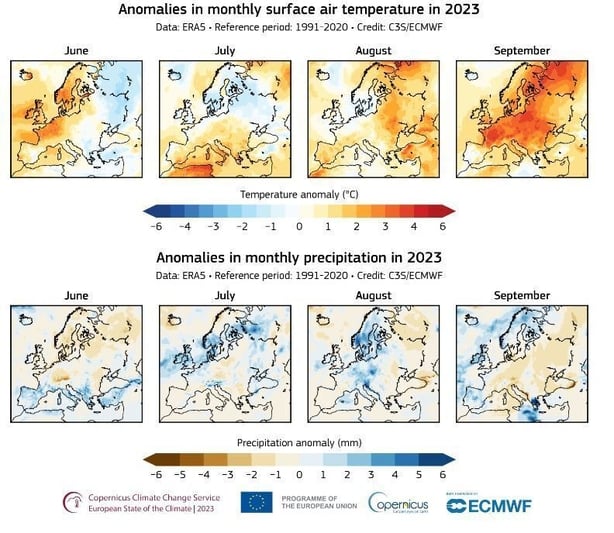
Between 55,000 and 72,000 deaths due to heatwaves were estimated in each summer of 2003, 2010 and 2022.
Glaciers in the Alps have lost 10% of their volume over the past two years and there are changes in the pattern of precipitation.
An increase in extreme rainfall is also leading to catastrophic events, such as the widespread flooding seen in Italy, Greece, Slovenia, Norway, and Sweden in 2023.
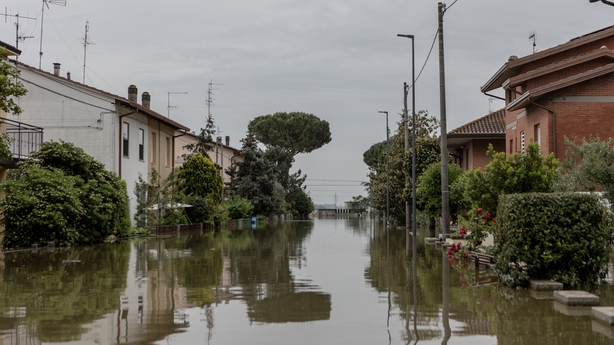
Europe was around 7% wetter than average last year making it one of the wettest years on record.
In total, 63 lives were lost due to storms, 44 to floods and 44 to wildfires.
Weather- and climate-related economic losses for the year were estimated at more than €13.4bn.
Flooding, which affected around 1.6 million people, was responsible for around 81% of those climate-related economic losses.
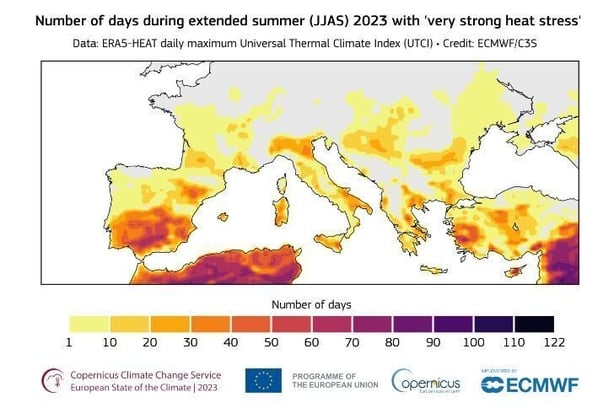
Report's summary of impacts:
- Losses estimated at €13.4bn
- 81% of economic losses attributed to flooding
- Flooding affected around 1.6 million people
- Storms affected around 550,000 people and 36,000 by wildfires
- At least 63 lives lost due to storms, 44 to floods and 44 to wildfires
We need your consent to load this rte-player contentWe use rte-player to manage extra content that can set cookies on your device and collect data about your activity. Please review their details and accept them to load the content.Manage Preferences
In Italy, 23 rivers burst their banks during May, causing 15 fatalities and displacing 36,000 people.
In August, two-thirds of Slovenia was affected by flooding with 8,000 people evacuated and six fatalities.
Norway and Sweden were also affected by flooding in August.
Greece, Bulgaria, and Turkey saw record-breaking rainfall and flooding in September.
In some places in Greece, the equivalent of a year's worth of rain fell in one day.
In December, European river flows reached their highest level ever.
Speaking on RTÉ's Today with Claire Byrne, Chief Executive of Friends of the Earth Ireland, Oisín Coghlan said: "I think the Copernicus report shows that climate change is really hitting home and people are realising that more and more in the extreme weather we are seeing in Ireland.
"My first thing I'd say is we need not lose hope about our ability to make a difference.
"We need to not give up – politicians just as they are making a difference need to not give up on taking action on climate and that looks like the worry now."
Mr Coughlan said the Government was overly timid, trying to avoid annoying a small cohort of voters at the risk of "our future being really compromised".
"The politicians need to stay the course and our data shows they have the public backing to do that," he said.
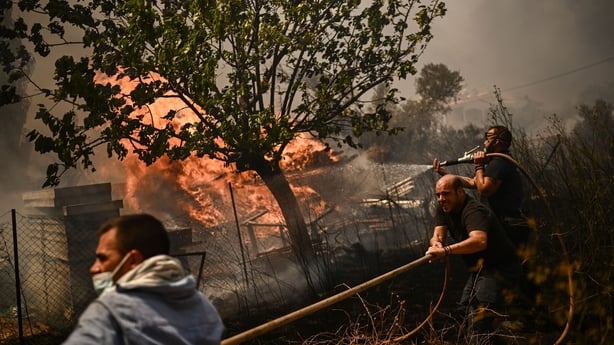
Meanwhile, southern Europe is seeing widespread droughts. The frequency and severity of extreme events are increasing.
There was a record number of days with "extreme heat stress," which is equivalent to a "feels like" temperature of more than 46C.
Sea-surface temperatures around Europe also reached record levels.
In June, the Atlantic Ocean west of Ireland and around the UK was impacted by a marine heatwave that was classified as "extreme" and in some areas "beyond extreme", with sea surface temperatures as much as 5C above average.
There were large fires in Portugal, Spain, Italy and especially Greece, where 96,000 hectares was burnt in the largest wildfire ever recorded in the EU.
Overall, 500,000 hectares of land was burnt in wildfires in Europe last year, the fourth largest area on record.
Summary of European climate records set in 2023:
- Highest number of days with "extreme heat stress"
- Largest area of Europe affected by at least "strong heat stress"
- Largest wildfire
- Warmest marine heatwave in the northeastern Atlantic
- Highest ever December river flows
- Largest proportion of renewable energy generation





